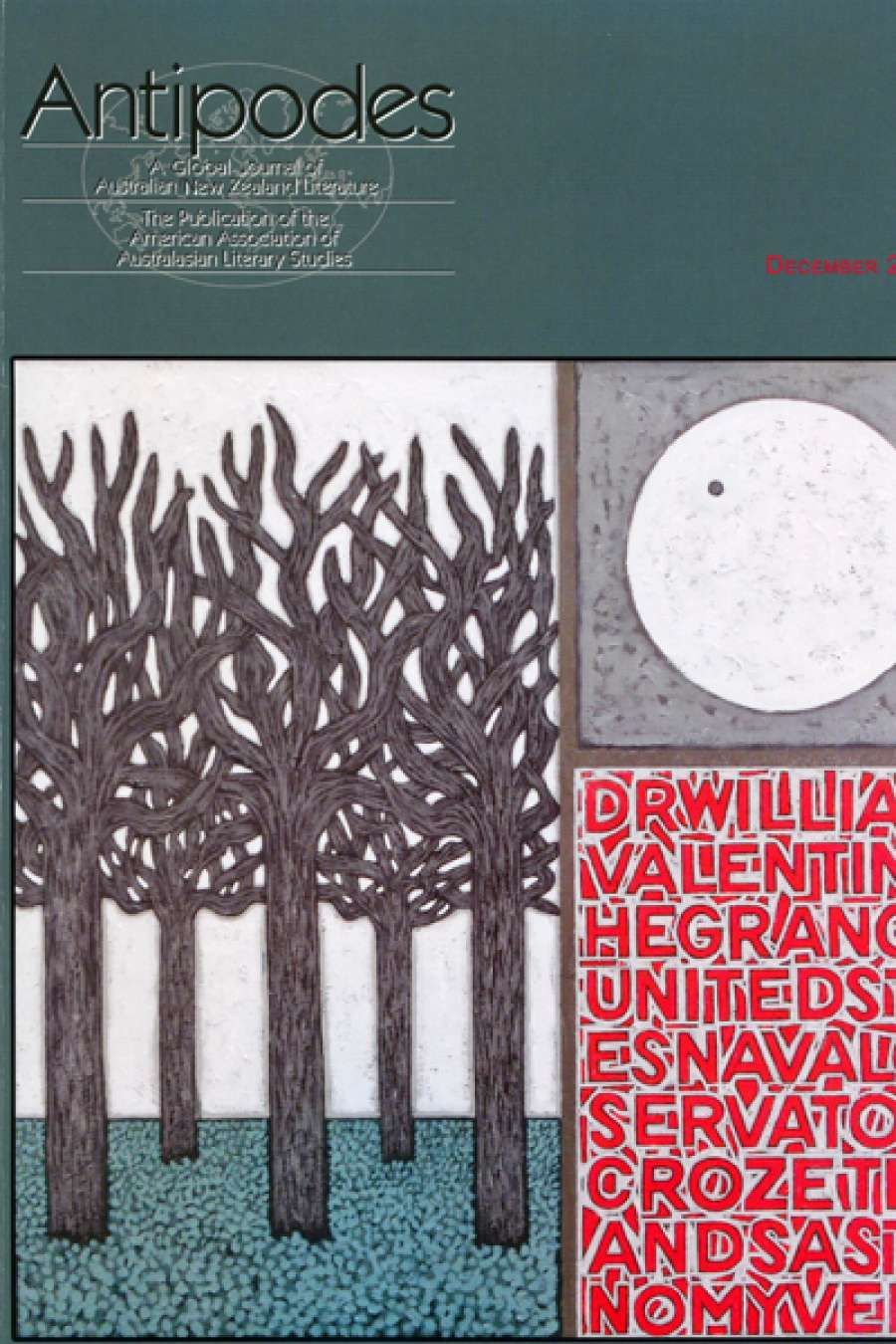
- Free Article: No
- Contents Category: Journals
- Custom Article Title: Susan Lever reviews 'Antipodes, Vol. 27, No.1'
- Review Article: Yes
- Article Title: Antipodes, Vol. 27, No. 1
- Online Only: No
- Custom Highlight Text:
No matter what the state of local publishing of Australian literature and criticism, twice a year the loyal members of AAALS continue to produce the readable and enlightening Antipodes. The June 2013 issue includes some splendid poetry by Tom Shapcott, Jan Owen, and Ali Alizadeh, and several less well-known names, and a mix of stories that move beyond fiction in Jeremy Fisher’s memoir of his father’s war experience and Graeme Kinross-Smith recalling his work teaching creative writing. Lucy Neave and John Kinsella contribute engaging, if more conventional, fiction.
- Book 1 Title: Antipodes, Vol. 27, No.1
- Book 1 Biblio: AAALS, US$47 p.a., 120 pp, 08935580
The guest editor, Mark Klemens, explains that the articles have a 1960s connection, with Michael Ackland on Christina Stead, Toby Davidson on Francis Webb, Janice Shaw on Frank Moorhouse, Colin Dray on Gwen Harwood, and Caterina Columba on Thomas Keneally considering these various writing careers during that decade. It does not detract from these contributions that the connection appears more accidental than sustained; most of them offer some interesting new insight on their authors. Rich Pascal’s sympathetic reading of F.B. Vickers’s The Mirage makes a strong case for the novel to take its place alongside Herbert’s Capricornia. Brenda Machovsky recalls a writer completely unknown to me, Iris Milutinovic. More tenuously, Brendan Ryan connects John McGahern with his own experiences of Irish Australia. Sean McMullen’s survey of Australian science fiction reveals that David Boutland, the television writer, was also David Rome, once a leading science fiction author.
Reading Antipodes causes a slight shift of perspective. Alongside the spacious presentation of the stories and poems, the articles appear dense and serious and, occasionally, odd in their detailed exposition of writing that has slipped from discussion in Australia. The book reviews cover the expected – recent novels by Peter Carey and Murray Bail – but also fiction and poetry from small presses that have hardly rippled the surface of Australian reviewing. It makes for an enjoyable, if idiosyncratic, encounter.


Comments powered by CComment